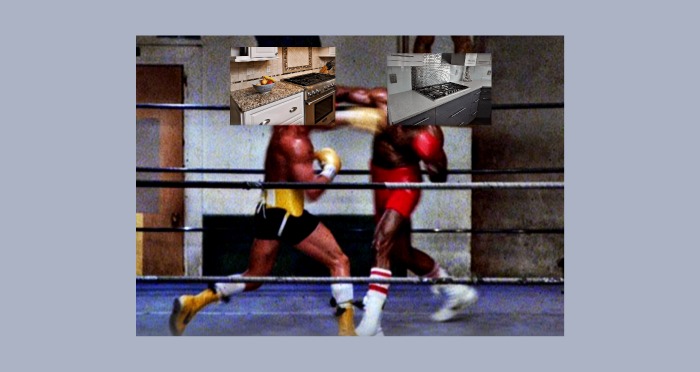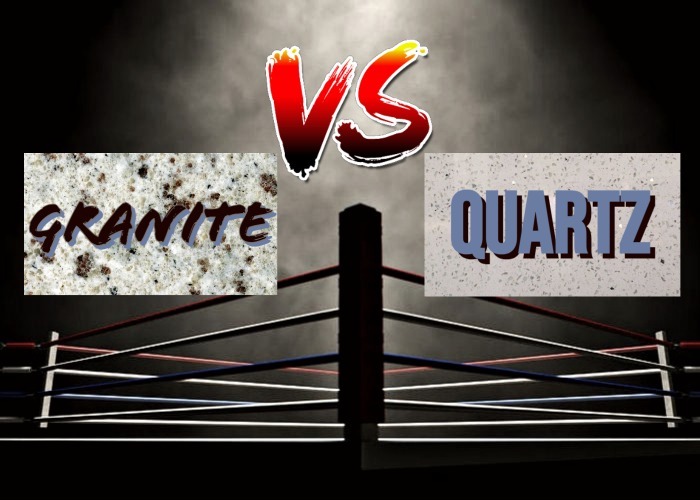The Fight of the Countertops
What’s The Difference: Granite vs. Quartz
The Pro’s And Con’s of Granite and Quartz Countertops.
When planning your next kitchen renovation, one of the most important aspects
is finding materials that meet your needs and your budget. It is a big decision to make,
having to take into account efficiency, durability, aesthetic and overall function. The
options to consider are endless when choosing the right countertops for your home,
but today we’ll be exploring the most modern, practical and popular; Granite or Quartz.
We’re talking about the Ali vs Frazier of countertops. Few surface materials are
bound to spark as heated of a debate and divide homeowners as much as Granite and
Quartz.. But why, is one actually better than the other or is it just preference? We have
broken down what makes both unique and by the end of this article you can decide
what best fits your home. Now with that out of the way, Let’s Get Ready to Rumble…
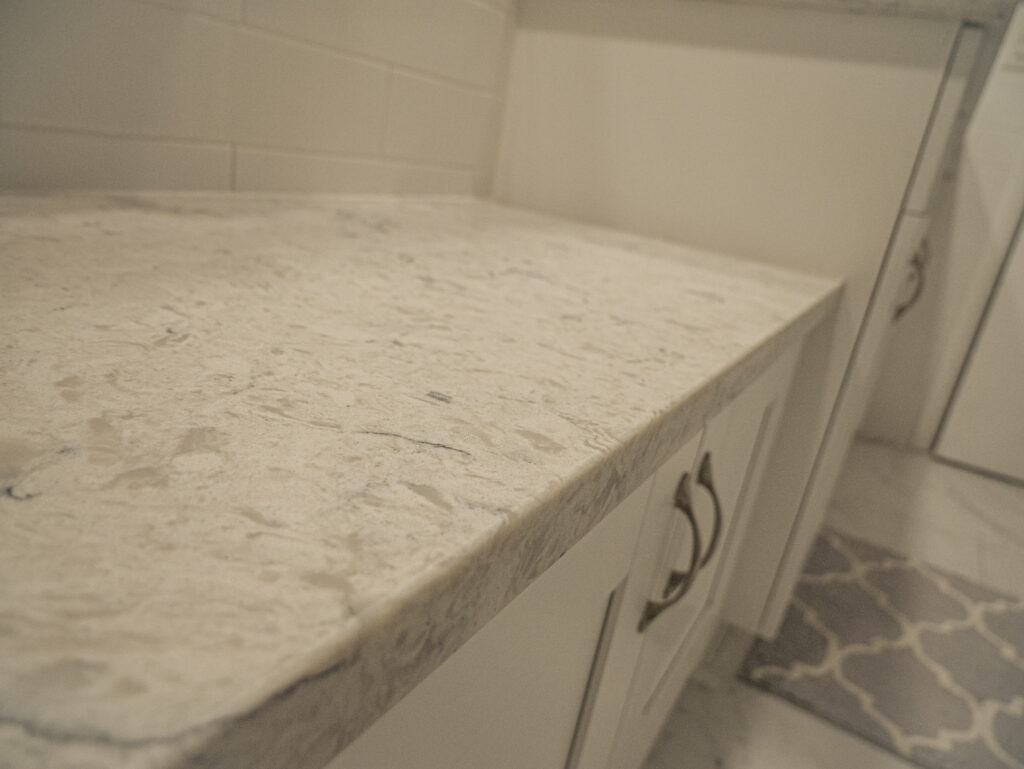
Granite Countertop
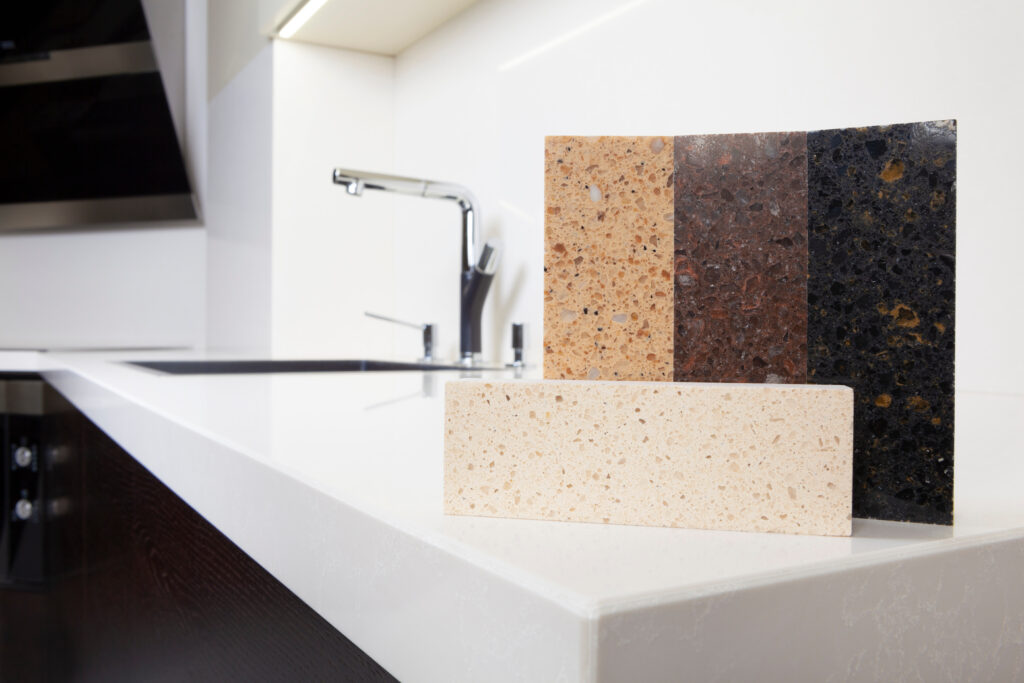

Quartz Sample
What Is Granite?
Granite is an igneous rock that forms under the surface of the earth due to the
slow crystallization of magma. Mined from quarries all around the world, Granite offers
many unique colors and patterns as they come from pure, natural stone. Composed of
mainly quartz and feldspar, it is in high demand due to the quality and durability of the
natural stone. It is common for homeowners and design enthusiasts who prefer a solid
stone material to choose granite for their countertops.
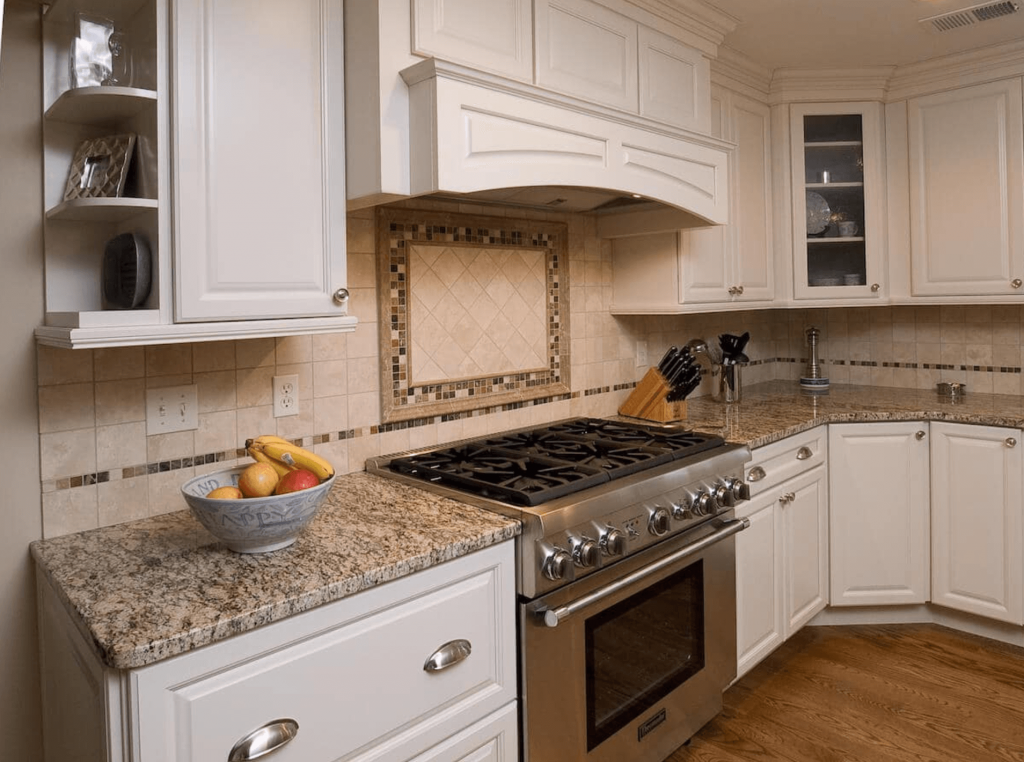

Granite seems the heavy favorite, No? The bell hasn’t even rung and yet it feels
like the fight is won, but like all things, Granite isn’t without its flaws. Let’s break it
down below…
Pros of Granite
Heat Resistant : Granite is known for it’s resistance to heat. From boiling pots to the
bare UV rays of the sun Granite is able to withstand extreme conditions from heat
without fading or breaking. That’s why many homeowners prefer it for outside areas.
Tough as Stone : Among the natural surface materials granite is the most durable.
Besides marble, granite countertops is the most reliable natural stone in resisting
cracks and chips. This makes them a worthy investment that can last for decades.
Aesthetic Appeal : Due to how they are formed, granite countertops come in 100’s of
unique colors and patterns. Like snowflakes from the earth, the striations in the stone
means no two slabs are alike.
Cons of Granite
Maintenance : To sustain its lifespan granite need a little more care. Annual resealing is
recommended to avoid bacteria build up and being natural stone, granite can stain
easily in comparison to quartz.
Difficult to match : Due to its uniqueness if a portion of your countertop needs to be
changed it is near impossible to find a matching piece, then you have to deal with
joining seams which look unsightly.
Strong, but Brittle : Granite is one of the most durable natural stones, but in
comparison to quartz it is less resistant to cracks, chips and scratching. Be careful
using sharp and heavy objects on granite countertops.
What Is Quartz?
Quartz may be a natural mineral, but quartz countertops are engineered
surfaces that are composed of 90-97% crushed quartz crystals, combined with
coloring pigment and bound by polymer resin. In contrast to granite’s color variations,
quartz stones are more consistent, this allows slab designs that are inspired by the
understated or dramatic veining of marble, the industrial feel and look of concrete, and
its own unique patterns, making it such a contender to granite. Quartz consistency also
allows more freedom in the customization of homeowners kitchens and bathrooms.
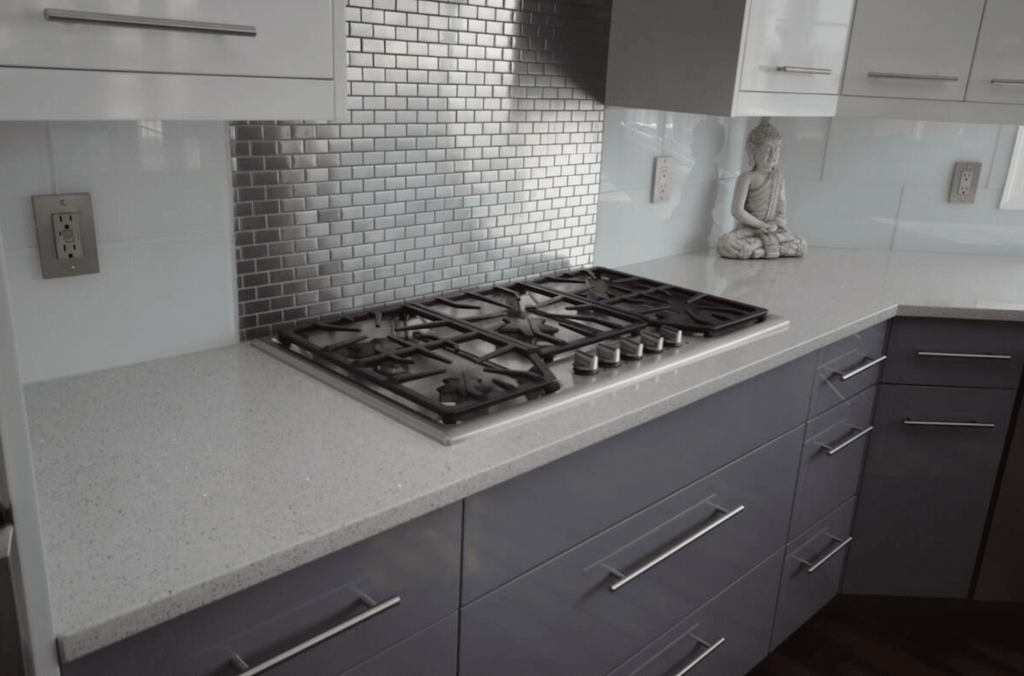

Quartz may have been down but it isn’t out! Half way through this heavyweight
bout of Slabs and quartz has a second wind. Let’s see if quartz can maintain and go
the distance in this matchup…
Pros of Quartz
Wide Range of Colors : Quartz comes in a wider range of colors and textures
compared to granite. This makes mixing and matching much easier since it is relatively
available in smoother and plain surface.
Hygienic : Quartz is nonporous which makes it an extremely hygienic surface material.
Resisting mold, mildew and bacteria it makes it less likely to hold viruses. Being
nonporous it also needs no resealing, unlike granite.
More Durable : Being an engineered surface quartz is harder and more durable than
any natural stone. Also more water resistant when compared to granite in wet locations
such as; Bars, bathrooms and showers.
Cons of Quartz
Nonnatural : Being an engineered surface material, quartz has no true natural beauty
to its aesthetic such as the swirls and striations that come with granite. This makes
every similar colored slab look the same with no real uniqueness.
Non Heat Resistance : Unlike granite, Quartz can and will be damaged under excessive heat.
It is important to place heating pads under hot pots and pans.
Inside only : Quartz may be more water proof but in harsh weather conditions extreme fading
will incur. This makes Quartz unsuitable for outside bars, tables or counters.
Conclusion…
Both Granite and Quartz put up a good fight, the contenders mixed in everything
they had from jabs to counter-punches. But who is victorious? Well that will be left up
to you, the judges, and what you have on your scorecard. In the end of the day your
remodel is all about you, what you want, what is right for your home and what fits your
budget best.
